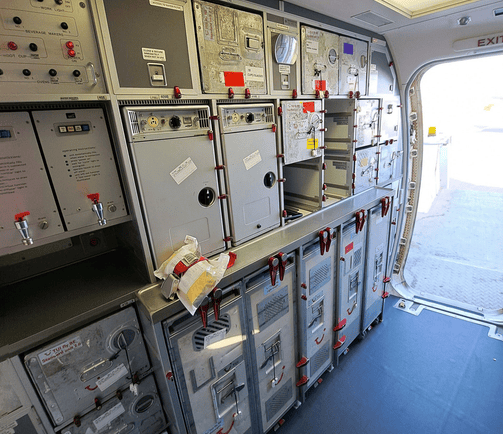The Reality of Last-Minute Requests
Going the Extra Mile: The Hidden Cost of Last-Minute Catering Requests in Airlines
3/10/20252 min read


Going the Extra Mile: The Hidden Cost of Last-Minute Catering Requests in Airlines
In the world of airline catering, every minute counts. Behind every perfectly plated meal served at 35,000 feet is a complex logistical dance—one that operates on razor-thin margins and even thinner timelines. Yet, despite meticulous planning, airlines often make last-minute requests, asking their caterers to accommodate changes right up to departure. While the caterer’s commitment to service might seem like going the extra mile, it comes with a hidden cost: compromised quality, operational inefficiencies, and even flight delays.
The Reality of Last-Minute Requests
Airline caterers operate with strict schedules. Every meal, beverage, and snack is prepared, packed, and delivered within a finely tuned window. When last-minute changes occur—whether it's an unexpected passenger count, a VIP request, or a sudden shift in menu—caterers scramble to accommodate. And they do. More often than not, they deliver, sometimes at the expense of their own efficiency and quality.
But at what cost?
The Consequences Behind the Scenes
Operational Disruptions
A last-minute request can throw off an entire production cycle. Kitchens work in batch production, meaning a sudden request for an extra 50 meals requires resetting workflows, repurposing resources, and often pulling staff away from other tasks. The ripple effect is immediate: delays in other orders, increased risk of errors, and added pressure on employees.Logistical Nightmare
Catering trucks are scheduled with military precision to ensure they meet multiple flights on time. A late request means rerouting a truck, delaying other scheduled deliveries, or even deploying an extra vehicle—adding cost and inefficiency.Quality Compromises
Speeding up production often means cutting corners. Rushed meals might not meet the usual presentation or taste standards, increasing the likelihood of customer dissatisfaction. Ironically, the effort to please passengers can backfire when quality is compromised.Flight Delays & Cost Implications
In extreme cases, these last-minute changes can push a flight’s departure time. A delayed catering truck can mean waiting at the gate longer than planned, leading to potential fines, increased fuel consumption, and disruptions to crew duty hours.
Striking a Balance
Airline caterers pride themselves on flexibility, but the industry must recognize the need for structured processes that allow for both exceptional service and operational stability. Airlines can play their part by improving forecasting accuracy, setting clear cut-off times for changes, and embracing a more collaborative approach with their catering partners.
Going the extra mile is what makes aviation special—but at some point, that extra mile starts costing more than it’s worth. The challenge is finding the sweet spot between service excellence and operational sustainability.
What do you think? Have you experienced the impact of last-minute catering requests firsthand? Let’s discuss in the comments!
#AirlineCatering #AviationOperations #CateringLogistics #AviationEfficiency #OperationalExcellence #AirlineIndustry #SupplyChainManagement #LogisticsChallenges #QualityControl #FlightOperations #CustomerExperience #LastMinuteChanges #FoodSafety #AviationManagement #LeanOperations #AerospaceIndustry #inflightcatering #InflightCatering #FoodfolkAustralia #ACA #ferier
